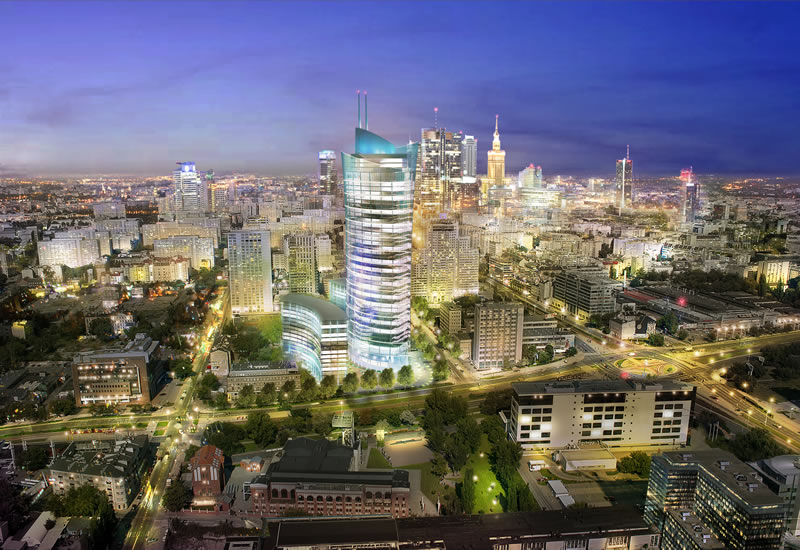Life /
Poles love of knights and battle. [10]
Stop being silly Monia, just leave us boys to compare portcullis sizes and go and bake some nice cakes or something ;)
Your statement only shows your chauvinistic attitude towards women .
As a matter of fact, things look quite different from your insular way of reasoning.
You are obviously far from being an objective person. I don`t know who you are , why are you so interested in posting on forum which is Polish and about Poland while you are British residing in Doncaster . I am quite aware that your knowledge about Poland is very limited by the fact that you don`t speak Polish.
That`s why your historical knowledge is obscure, backward, narrow- minded. Anyways I will try to give you a closer look at our history.
Poles are a very proud nation and we nurture whatever is connected with our heritage and naturally architectural monuments are the first on that list. Not only adults, but even very young Polish children do know who built Malbork, that's why we preserve the castle in immaculate conditions, because it is part of our heritage; just take into account few simple factors :
- It was built mainly by pheasant community of local Prussians (tribes of Baltic region which was not Germanic) , Poles and in lesser extent Germans.
- Teutonic Knights order was German, but they used Prussians as slave workforce
- German nobles from Germany were supplying this Teutonic Knights order with funds to use them as means of conquering Polish lands and later reasoning their action as if it was done on behalf of Prussian community - indigenous people , while the facts were such that Prussians were systematically murdered by the Germanic order over the years to provide the German settlers with the fertile land as German flagship policy stated - Drang Nach Osten .
- The statement that Teutonic Knights order build castles is just a simplification used in superficial historical sketches made for popular recipients.
- Malbork castle is a symbol and a monument commemorating our great victory over the enemy,
- it serves us as a history lesson not to be merciful to the enemy, because the enemy not destroyed until the end can rebuild its strength and can hit back with a greater vengeance and power. In fact Germans did it later towards Poland.
- It was a residence of our kings for 200 years, until partitioning. When Poland reinstated its existence Malbork castle returned to legal owners, so the input in Malbork castle`s present conditions is solely ours.
Historical facts about Prussia. Some of you might not know that:
For the suppression of Prussian society, the Knights defeated or liquidated in absolute terms, the social structure of the Prussians.
Remnants of the Prussian population were used to build churches, forts and castles, which then became the headquarters of the knights all over Christian Europe.
Without the help and support of the Popes, the whole process of crusade and conquest would not be possible.
Order received many privileges, like indulgences known in middle Ages.
Together with the progress of the conquest of Prussia, cruelty combined with bestiality grew. Details of these atrocities are described in the Appeal of Prussians to the European Parliament, as well as biographies of Prussian heroes.
In protest against these atrocities and extermination of the people, in 1260, united Prussians caused a revolt against the invaders. Monte Herkus the leader of the uprising to stop the extermination of Prussia wrote a letter to the Pope offering a complete subjection of Prussia to Christian faith. The Papacy ignored the letter and still called the Knights to continue their crusades. Prussians stood to fight with all the knights of Europe, as well as Czech king and his entourage. The fight ended in 1283. The conquest lasted 53 years. It cost the Prussians the loss of about 50% of the population. Please take into account that about 10% of the Prussians during the conquest escaped to Polish and Lithuanian territories. Approximately 80 000 Prussians were exterminated during the conquest. They were also forced to take an active part in the Teutonic military "adventures" against Poland. Prussian duty was to work in the estates of the Teutonic Knights and bishops.
Economic discrimination was already well-known pledge to control and enslave indigenous people.
Nobody cared about education, culture, language or any rights of Prussians. They had no ally in their humiliation, abuse and numerous persecutions.
The seventeenth century, was the century in which the German power under the name of Prussia was established. Along with that the class of Junker landlords arrived , while indigenous people were living in miserable conditions. Such conditions together with starvation, diseases, continually were reducing the population of Prussia.
Germany brought the bubonic plague in the early eighteenth century decimated the poorest part of Prussians. Prussians were decimated and it is possible that 50% of the Prussian population did not survive the epidemic.
The nineteenth century under the leadership of Bismarck, it was a huge conglomeration of Germanic Prussia, with a number of offensive wars. The remaining population of Prussia outclasses to zero. Prussian language disappears, and with it their identity.
The entire German Prussia was regarded as the cradle of Prussian abomination among other nations. Across Europe, the word Prussian was disgusting.
But in fact, only few know, that the name of Prussia related to indigenous people, who ceased to exist on the grounds of the fact that it was done by Germans.
Today we have in Poland about 7,000 people who bear that name.
Such is the fate of Prussia, evaluation I leave with you.
 PolishForums LIVE / Archives [3]
PolishForums LIVE / Archives [3]
